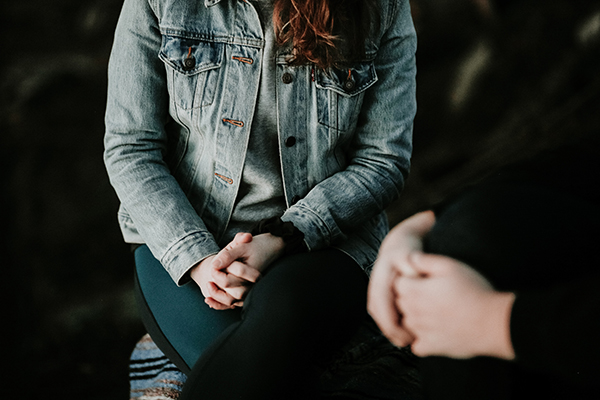Why talk about it? What good will it do? It’s done. My loved one died. Nothing that I say is going to bring him/her back. I just need to move on.
Sound familiar? Have you said thoughts like this to yourself? Have you said it to others?
That attitude is like trying to take a short cut on the journey of grief… and that rarely ends well. It takes you away from the one thing that you need to heal… attention to your broken heart and all the feelings that it holds.
Healing from grief just doesn’t have a shortcut.

To quote David Kessler, grief expert: “Each person’s grief is as unique as their fingerprint. But what everyone has in common is that no matter how they grieve, they share a need for their grief to be witnessed. That doesn’t mean needing someone to try to lessen it or reframe it for them. The need is for someone to be fully present to the magnitude of their loss without trying to point out the silver lining.”
It’s important for your grief to be witnessed. Witnessed? What does that even mean… “witnessed?” It actually means sharing with others and holding a space for your grief and feelings in a safe place. These are key elements in healing.
The event you are grieving is huge and often traumatizing. It changes your life forever, on many different levels. Your reaction to the event includes both grief and mourning. Grief is what happens inside of you, in your body. Mourning is what happens outside of you. It’s what we do with others.
Neither of these is easy. Some people are very private and don’t want to share. They don’t want to show raw feelings because it can be so messy. Sometimes, you won’t even know that you’re going to cry until the grief gets triggered (sometimes by the smallest things) and there you are, crying or angry or resentful or sad or lonely… you know, all of those “messy feelings” that we often try to hide away for our alone time when no one can see just how deep your real pain lives.
Witnessing requires a safe place with no one giving you advice or talking about how you should feel blessed or strong — otherwise known as toxic positivity. Witnessing allows you to feel whatever you feel and not be alone with those feelings. There are many places where we begin to have our grief witnessed. This can begin at a funeral, at a memorial, at a shiva, in private therapy and especially in a grief support group.
Being in a grief group is like offering mutual aid for the pain and wounding from an important loss. Grief grabs your heart and doesn’t seem to let go, says Kessler. In a recent grief group, one of the men was feeling so much pain at the loss of his wife that his tears just spontaneously started to flow. No one could change his situation but his tears were like a warm invitation to quietly hold and comfort his heart. Our hearts need to be held when there is so much pain.
So, what does the witnessing of others do for you and your grief?
- It takes you out of isolation so that you aren’t alone. It connects you when a huge disconnection has occurred.
- It gives you a narrative for the inner pain that you bear.
- It helps to soften the edges of trauma.
- It makes your pain and healing important and not hidden. It confirms that it really did happen.
- It keeps your memories and your loved one alive through others.
- It helps you to find meaning and an articulation of your human experience… and that of your loved one.
- It helps to give you a “home” for your sense of feeling lost and confused and leads you to find yourself again.
- It helps your mind to move, open and create space inside.
- It helps you begin to experience, name and share your feelings. It gives you company in that long transition tunnel between an ending and a redefined new beginning.
To quote the poet, Rumi: “Out beyond ideas of wrongdoing and rightdoing there is a field. I’ll meet you there. When the soul lies down in that grass the world is too full to talk about.”
Let us visit this space together, this space of feeling and sharing where you are witnessed. There is healing waiting there for you.

